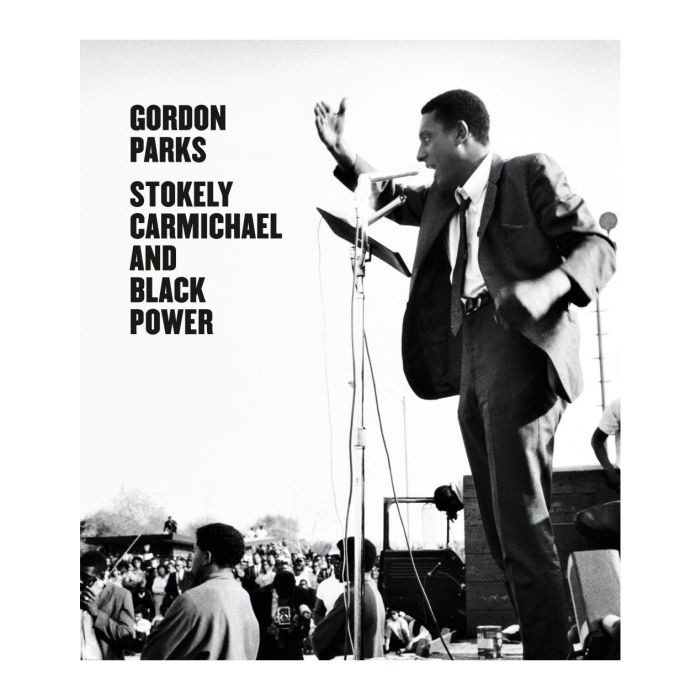My Cart
Your cart is empty
Looks like you haven't made your choice yet.
- Subtotal
Gordon Parks

Stokely Carmichael and Black Power
- Steidl
More Information
| Publisher | Steidl |
|---|---|
| ISBN | 9783969990940 |
| Publication date | August 2022 |
| Edition | Hardback |
| Dimensions | 290 x 250 mm |
| Pages | 176 |
| Language(s) | English ed. |
Description
Gordon Parks' 1967 Life magazine essay 'Whip of Black Power' is a nuanced profile of the young and controversial civil rights leader Stokely Carmichael. As chairman of the Student Nonviolent Coordinating Committee, Carmichael gained national attention and inspired media backlash when he issued the call for Black Power in Greenwood, Mississippi, in June 1966. Parks, on contract with Life, shadowed him from the fall of 1966 to the spring of 1967, as Carmichael gave speeches, headed meetings and promoted the growing Black Power movement. Parks' photos and writing addressed Carmichael's intelligence and humor in equal measure, presenting the whole man behind the headline-making speeches. In his finely drawn sketch of a leader and a movement, Parks reveals his own advocacy of Black Power and its message of self-determination and love.
Stokely Carmichael and Black Power delves into Parks' groundbreaking presentation of Carmichael, and provides a detailed analysis of his images and accompanying text about the charismatic leader. Essays by Lisa Volpe and Cedric Johnson shed critical new light on the subject: Volpe explores Parks' complex understanding of the movement and its leader, and Johnson frames Black Power within the heightened social and political moment of the late 1960s. Carmichael's own voice is represented through a reproduction of his important essay "What We Want" from September 1966.
